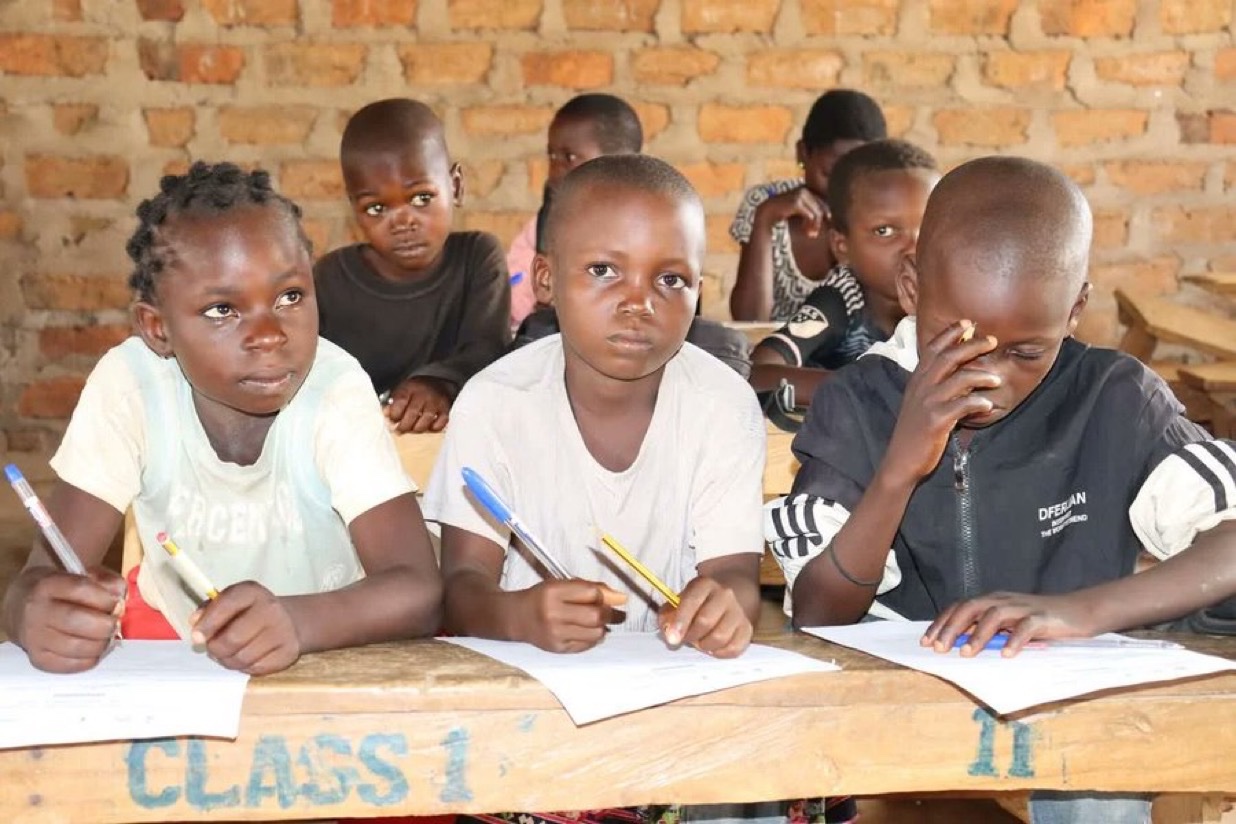
Nigeria’s Alarming Reality: UN Ranks Country Fourth Worldwide for Grave Violations Against School Children in Armed Conflict

Nigeria has once again been thrown into the global spotlight for a disturbing reason, as a recent United Nations report revealed that the country ranks fourth globally among nations with the highest levels of grave violations against school children in situations of armed conflict. The revelation paints a grim picture of the worsening plight of children in the country’s conflict-ridden regions, where insecurity, insurgency, and armed violence continue to rob thousands of children of their basic right to education, safety, and a future free from fear.
The UN’s report, part of its annual assessment of children in armed conflict, identifies Nigeria as one of the countries where schoolchildren are increasingly targeted, either as direct victims of attacks, abductions, or as collateral damage in violent clashes. Grave violations in the UN’s categorization include the killing and maiming of children, recruitment and use of children as soldiers, sexual violence, abductions, attacks on schools and hospitals, and the denial of humanitarian access. For Nigeria to occupy the fourth position in this deeply troubling global ranking speaks volumes about the scale of the crisis affecting its young population.
The problem has been building for more than a decade, with the Boko Haram insurgency in the northeast laying the foundation for Nigeria’s tragic inclusion on the list. Since 2009, when Boko Haram escalated its war against the state, schools have become targets of bombings, burnings, and mass abductions. The world will not forget the 2014 kidnapping of more than 270 girls from their school in Chibok, Borno State, an incident that triggered the global #BringBackOurGirls campaign. Yet, over a decade later, hundreds of students are still being abducted from their classrooms, with mass kidnappings in Katsina, Zamfara, Niger, and Kaduna states dominating headlines in recent years. These abductions are often carried out by armed bandits, insurgents, or criminal groups who use children as bargaining chips for ransom or political leverage, leaving families devastated and schools empty.
The UN report emphasizes that Nigeria’s ranking is not just a reflection of sporadic incidents but a systemic problem that has persisted and worsened. Grave violations against children in conflict zones are no longer isolated events but recurring patterns of abuse that the state has struggled to curtail. In rural communities, children are kidnapped on their way to school, forced into early marriages after abduction, or made to work as child soldiers and informants for armed groups. Schools are attacked, teachers killed, and classrooms destroyed, creating an atmosphere of fear that discourages parents from sending their children to school. This has exacerbated Nigeria’s already dire out-of-school children crisis, which UNICEF estimates to be over 20 million, the highest in the world.
The psychological toll on survivors and families is immeasurable. Children who have escaped from armed groups recount harrowing experiences of torture, indoctrination, and forced participation in acts of violence. Many of the girls abducted are subjected to sexual slavery, forced marriages, and repeated abuse, leaving them scarred for life. Communities that lose their children to armed groups are left grappling with trauma, distrust, and insecurity, creating cycles of poverty and underdevelopment that perpetuate the conflict. For those who remain free but live under the shadow of abductions, education is often no longer seen as a safe pursuit, depriving a whole generation of its future potential.
International observers are increasingly alarmed by the Nigerian government’s inability to put an end to these violations. Despite military operations against insurgents in the northeast and security deployments to states plagued by banditry, the attacks have continued unabated. The UN report points out that lack of adequate security, weak enforcement of child protection laws, and systemic corruption have undermined efforts to safeguard children. Furthermore, the government’s frequent denial or downplaying of figures relating to abductions and killings has raised questions about transparency and accountability in addressing the crisis.
The consequences of Nigeria’s position on this global list are far-reaching. Internationally, it damages the country’s reputation, raising concerns about its commitment to protecting children’s rights and fulfilling its obligations under international law. Domestically, it risks normalizing violence against children, as each new incident of abduction or attack becomes yet another statistic in a growing list of tragedies. Parents in affected communities no longer measure life by ordinary milestones but by whether their children return safely from school each day. The basic notion of childhood as a time of safety, learning, and innocence has been shattered for millions.
The UN has called for urgent action, urging the Nigerian government to strengthen its child protection systems, enhance security around schools, and hold perpetrators accountable. It also stressed the need for international support, including funding for humanitarian assistance and programs aimed at rehabilitating rescued children and reintegrating them into society. Civil society organizations in Nigeria have echoed this call, arguing that unless Nigeria invests heavily in securing its schools and addressing the root causes of conflict, its children will continue to pay the price.
What makes the situation particularly concerning is that children are not just passive victims but are increasingly being used as tools of war. Reports indicate that armed groups have coerced children into carrying weapons, planting explosives, or serving as spies. Girls, on the other hand, are subjected to gender-based violence on a massive scale, with sexual abuse used as a weapon of intimidation and control. These practices not only devastate children’s lives but also tear apart the social fabric of entire communities, making reconciliation and peace even harder to achieve.
Nigeria’s ranking alongside war-torn nations like Afghanistan, Syria, and the Democratic Republic of Congo underscores the severity of its crisis. Unlike some of these countries, however, Nigeria is not officially in a state of war, yet the level of violence inflicted on its children is comparable to the world’s worst conflict zones. This contradiction raises uncomfortable questions about governance, security, and the value placed on children’s lives in the country.
The urgency of addressing this issue cannot be overstated. Every day that passes without concrete action means more children are exposed to abduction, violence, and trauma. The Nigerian government must go beyond rhetoric and adopt a comprehensive approach that includes bolstering security around educational institutions, negotiating the safe return of abducted children, investing in community-based conflict resolution, and ensuring justice for victims. International partners must also do more than issue reports; they must provide targeted support that strengthens Nigeria’s ability to protect its most vulnerable.
Nigeria’s future depends on its children, yet its present reality is one where children are increasingly unsafe. The UN’s ranking is a damning indictment that should serve as a wake-up call for leaders and citizens alike. If left unchecked, the grave violations that now define childhood in conflict zones could condemn an entire generation to a cycle of fear, lost opportunities, and unfulfilled potential. The time for urgent, coordinated, and decisive action is now, because every child deserves to learn in peace, grow in safety, and dream without fear of being silenced by
the sound of gunfire.


